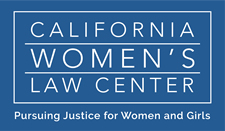“A woman’s right to choose an abortion is something central to a woman’s life, to her dignity… And when government controls that decision for her, she’s being treated as less than a full adult human being responsible for her own choices.”
Justice Ruth Bader Ginsburg
Like so many Americans, those of us at CWLC have spent the past week mourning the loss of Justice Ruth Bader Ginsburg and reflecting with gratitude on her enormous contributions to our country. Her sharp legal mind and staunch support of the rights of women and girls made her an unparalleled champion of equality. Her presence on the bench will be profoundly missed.
Justice Ginsburg was a remarkable trailblazer who broke down barriers to create an extraordinary path for herself and future generations of women. One of nine women attending Harvard Law School in a class of 500, she was asked by a professor why she was taking a spot from a man. When she ultimately graduated from Columbia Law School, she tied for first in her class while simultaneously raising her young family. Gender discrimination and family caregiving are common obstacles facing women, and Justice Ginsburg spoke publicly about the unique pressures put on women in both the workplace and the home.
Justice Ginsburg recognized and fought tirelessly to change systems of oppression that disadvantage women. In the early chapters of her legal career, she worked and volunteered as an attorney, arguing several cases before the U.S. Supreme Court that advanced women’s rights, including banning gender discrimination in jury selection. This important victory ensured women’s perspectives and experiences are included in jury trial decisions.
The second woman ever to serve on the Supreme Court, Justice Ginsburg authored and joined opinions that protected abortion access, legalized same-sex marriage, and enforced equal access to education for female students. When her colleagues on the Court sided against equality, Justice Ginsburg issued fiery dissents. She skewered majority opinions that opposed gender pay equity and fought for insurance coverage for birth control.
Justice Ruth Bader Ginsburg’s wisdom and tenacity have made this country more equitable.
But the fate of this progress is now uncertain, particularly for women’s health. This week marks World Contraception Day, yet despite global recognition of the importance of birth control, women in the U.S. are reporting difficulties accessing contraception during the COVID-19 pandemic: this is true for 29 percent of white women, 38 percent of Black women and 45 percent of Latinas.
Adding to women’s reproductive challenges, tomorrow marks the forty-fourth anniversary of the Hyde Amendment, the U.S. policy prohibiting federal funding for abortion care. This policy continues to limit low-income women’s access to reproductive choice, and soon the Supreme Court will likely decide on precedent-setting cases concerning anti-abortion legislation passed by conservative states.
And, as we absorb the horrific news about forced sterilizations in an immigrant detention center in Georgia, we note that Justice Ginsburg filed the first federal case challenging this appalling practice, suing the Eugenics Board of North Carolina for coercing a mother into sterilization by threatening to end her family welfare benefits. This case was filed in 1973, the same year Roe v. Wade was decided.
In her own words, Justice Ginsburg reminded us that “Dissents speak to a future age. It’s not simply to say my colleagues are wrong and I would do it this way, but the greatest dissents do become court opinions.”
In this spirit, CWLC will continue advocating for gender equality. The months ahead will be filled with speculation about what Justice Ginburg’s absence will mean for the future of human rights in our country. Alongside our allies, we will carry on her legacy of fighting to protect the rights of all people, including women and girls.
Justice Ginsburg left an inspiring imprint on our society. She touched many of our lives personally and provided the inspiration to pursue careers in law and women’s rights advocacy. CWLC’s Senior Staff Attorney, Amy Poyer, recently spoke to NBC 7 San Diego about the life and legacy of Justice Ginsburg. Watch her interview here.
